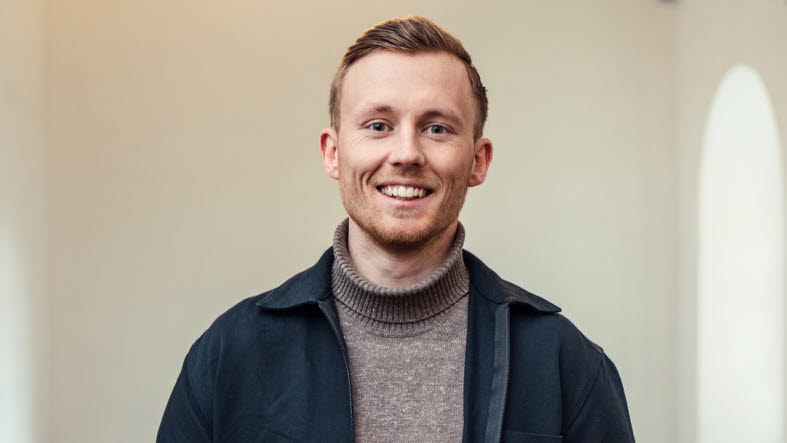Each year Universum arranges a Student of the Year competition together with some of Sweden’s leading companies, where a Student of the Year is named in various categories. Working together the companies’ goal is to attract students who have “that little extra”.
What’s new this year is an award for Tech Talent of the Year, which is sponsored by SEB. In mid-February a case week was arranged for the eight Tech Talent finalists, who were assigned to solve a challenge focusing on sustainability, finance and machine learning in the Google Cloud platform.
The lucky winner was Johan Hammarstedt, who is studying machine learning at KTH Royal Institute of Technology. At the award ceremony, Petra Ålund, head of Technology noted that the winner was able to use all available data in a structured manner, was determined and analytic, and demonstrated good comradery with his competitors.
Congratulations on your award! What inspired you to apply for the Tech Talent of the Year challenge?
Thanks! I was in the process of applying for summer jobs and wanted to work with something in machine learning when I saw an ad for the competition on LinkedIn. The concept and format of solving a challenge sounded exciting. Plus I have worked previously at SEB, in Compliance, which I really enjoyed, so it was a fun opportunity to return.
Can you tell us more about the challenge?
We gained access to an enormous set of news data (GDELT) – 7.5 billion news articles in 100 languages that is updated every 15 minutes. We were then given a free hand to do what we wanted as long as our work was grounded in machine learning and sustainability. It was a challenging but fun task. Fortunately, the jury apparently like my presentation – a sentiment analysis of companies with a surplus/deficit of CO2 emission allowances.
What have you worked with so far? What does an ordinary day at work look like?
I was given quite free reins ahead of the summer, but my thought was to continue exploring GDELT and working with Google Cloud. I therefore decided to try to build a small application to be able to efficiently search for, visualise and analyse news in GDELT. I hope to be able to use this for various types of macroanalysis as well as other types of trendspotting. The idea is also in the future to be able to add functionality to the app and build further upon analysis of various areas on top of what I had time to build during my time here.
Initially I did a lot of research, and now I’m sitting most and programming. Most of the time I’m working with the Analytics team, which is headed by Salla Franzén, Chief Data Scientist at SEB. But I have also had the opportunity to rotate, so for example I’ve worked a week with Google Cloud Support to get input for the actual infrastructure for the app. In August I’m working with SEBx, SEB’s own start-up which works with exploring and evaluating new technologies and platforms. I have been assigned different tasks for each rotation, but they have all been able to contribute to my main project and have followed a common thread with focus on work with the cloud. It’s great fun getting to work with what I’m passionate about – machine learning and programming.
What is it that fascinates you about machine learning and AI?
It’s so amazing since it can be applied for many “cool” problems and in different areas. It’s only your imagination that sets limits to what problems you can solve. In my bachelor’s exam, for example, I wrote about music recommendations using data I had obtained from Spotify. What I like about the banking business is that there is so much data that is available and such a broad spectrum of challenges to solve. The opportunities for research are infinite – machine learning and AI can be used for everything from macroanalysis, to detecting financial crime, to providing proactive customer advice.
Why would you recommend other techies to apply for work at SEB?
At SEB you get to work in a lively tech organisation with a lot of flexibility, and you are encouraged to try new things. It’s really a cool and innovative environment with resources at your fingertips. Plus I have received an incredible amount of support from various colleagues in the bank – there are so many smart people with various types of competencies. Everyone has been incredibly helpful from day one. And, as I have described, there are so many interesting problems and questions to explore at SEB. I can enthusiastically recommend all tech-interested students to apply for Tech Talent of the Year or to any of SEB’s Tech programmes.

